A spirited revival? Fighting to breathe life back into Cheney Farm
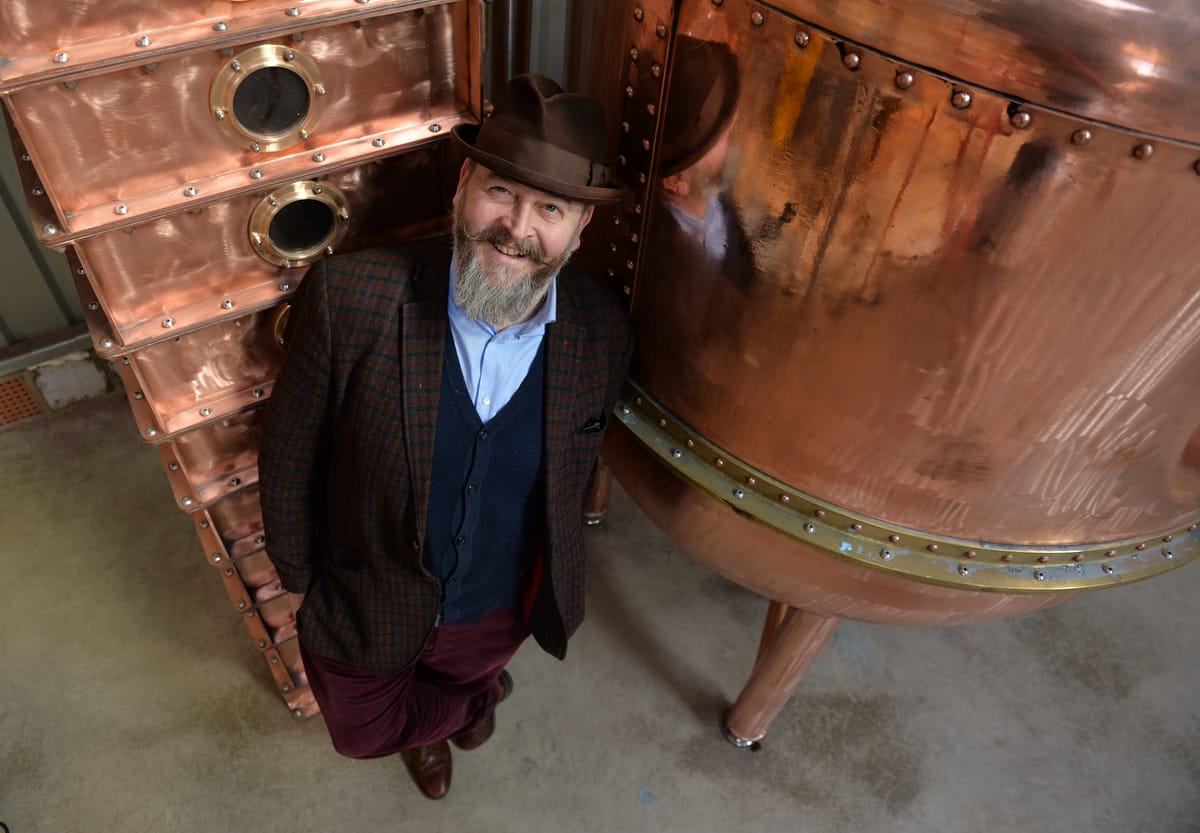
Urban Oxford has a surprising number of farms.
Wood Farm is a 1950s/60s development south of Headington. Court Place Farm is the home of Oxford City FC. Oxford City Farm is the kid-friendly food and animals space by Florence Park. And Cheney Farm, at the top of South Park, is a distillery.
At least, it was until recently. TOAD, aka The Oxford Artisan Distillery, made award-winning spirits. It collaborated with the Ashmolean and the Botanic Garden. The distillery tours it offered were ranked as the most popular attraction in Oxford on Tripadvisor within a short time of opening – quite something in this of all cities.
TOAD was Oxford’s first ever distillery and, it is claimed, the world’s first bio-diverse distillery – producing premium spirits using local regeneratively farmed heritage grain. Founder Tom Nicolson talks up its pioneering spirit:
“Let’s be clear, it was an historic and collaborative achievement launching Oxford’s first ever distillery. It came about because of many parts of the city coming together to make it happen. Oxford City Council had the vision to support the project with its lease, and the Oxford Preservation Trust lifted old covenants on the site to enable a distillery to operate. This is an ancient city, and it’s amazing that it had to wait until this century to get its own distillery, courtesy of a group of many different parties all wanting the same thing at the same time. In classic Oxford style, it produced another first by helping birth the world’s first biodiversity-focused spirits producer, using older, traditional and more wholesome farming methods. The University of Oxford’s Botanic Garden helped with this.”
But now the stills are just that: still. The tourist attraction is mothballed. South Park remains a park – a beautiful park with a great playground, but no café, no facilities. No gin, no whisky, not even the angel's share.

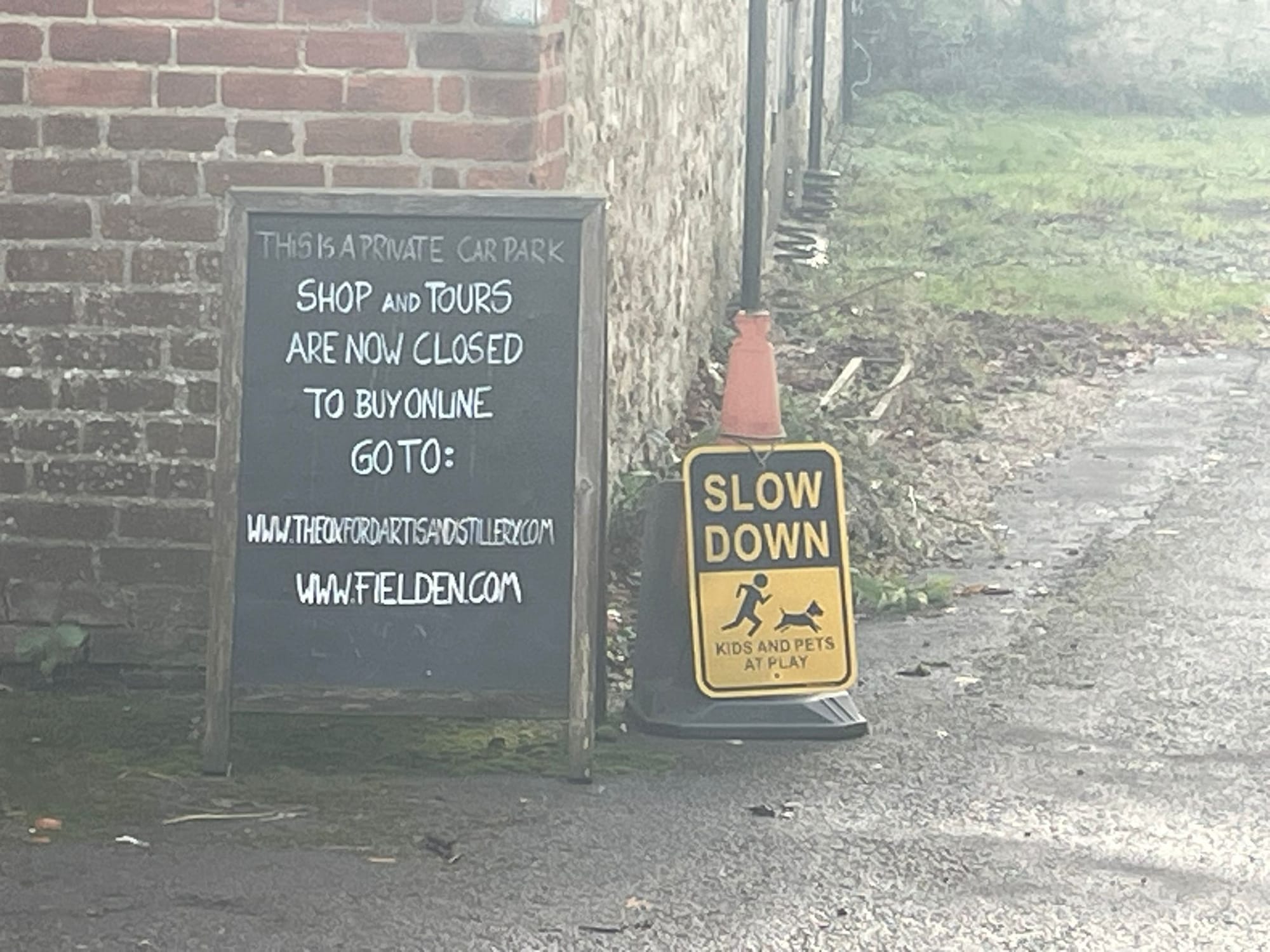
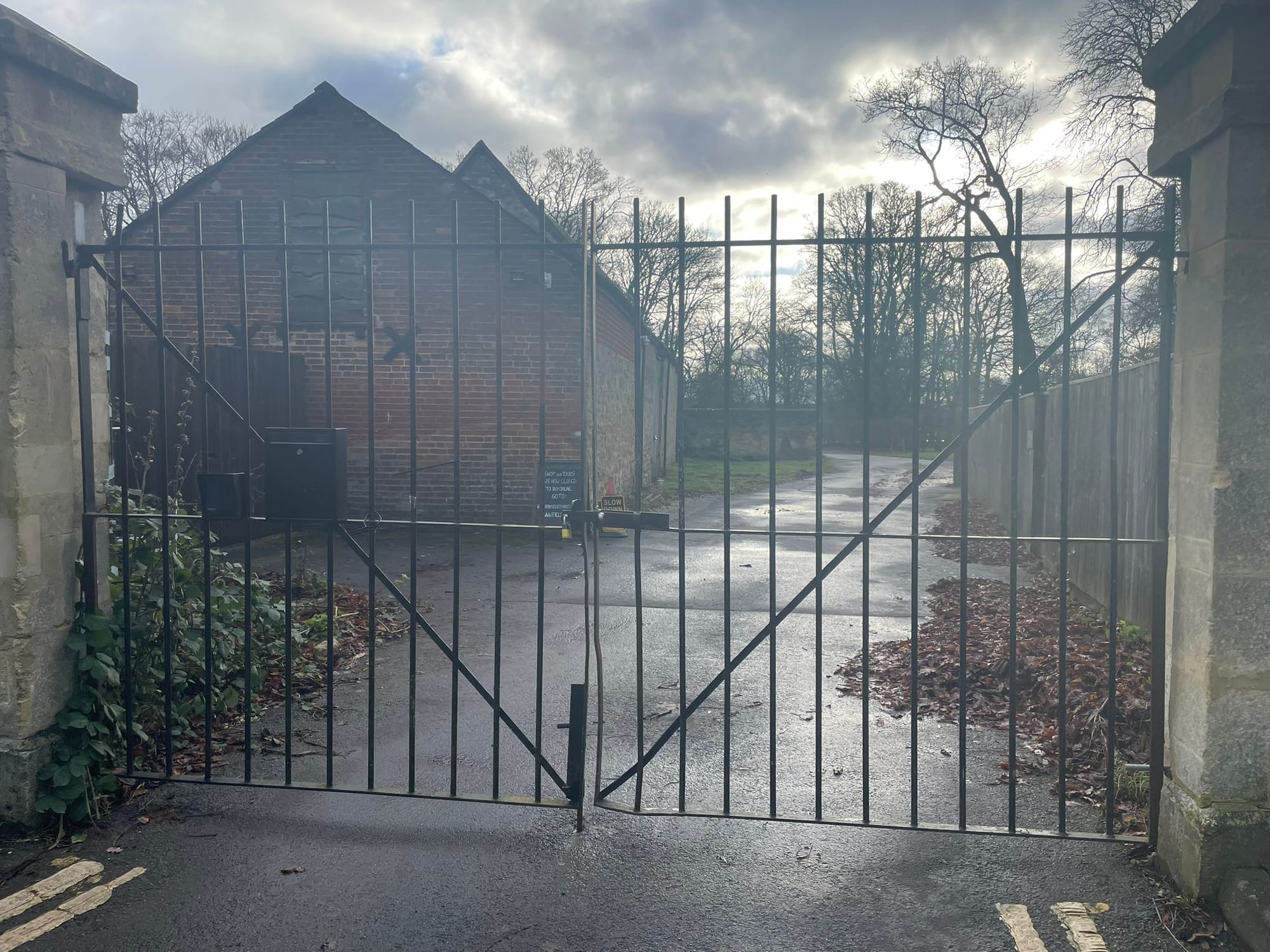
The mothballed Cheney Farm in January 2025 (Oxford Clarion)
Rise and fall
In 2017, Nicolson started a distillery on South Park. It was a roaring success. Five short years after launch, the business secured significant investment from drinks giant Diageo to scale up production of its rye whisky. New directors came on board, and in early 2024, they announced TOAD would be relocating to a larger site in Yorkshire, trading under a new brand, Fielden. Fielden is an entirely different story, and if we were the Yorkshire Clarion we’d be writing it. But we’re not. (We looked at the closure of TOAD in a long read in August 2024.)
As a result, the Oxford site has been vacant since April 2024. The land is owned by Oxford City Council, which as regular Clarion readers will know, is required to achieve the best possible rent for the site. We imagine there aren’t a lot of artisan distillers just waiting in the wings to take over a distillery, particularly one about which Fielden CEO Dave Smith previously said:
“Continuing in the Oxford site with the former stills is simply not viable. The stills themselves are unfortunately no longer fit for purpose and continued use was deemed a health and safety risk, and restoration options were just too costly. We explored options to remain at our home in Oxford, but the site is difficult to develop given its physical footprint, location and the fair and reasonable restrictions imposed by the Oxford Preservation Trust covenants and Oxford City Council’s planning requirements."
So the City Council applied to itself for planning permission (again, regular readers will understand about the separation of departments) to redesignate the land for storage purposes, including the listed barn. It invited bids through a commercial listing, saying proposals would additionally be evaluated for social value and visitor experience: “We are looking for a landmark tenant with a use that fits well with the heritage of the site in the setting of the park.” And then, yesterday, it withdrew the application – so as it stands, the site is only permitted to be used as a distillery.
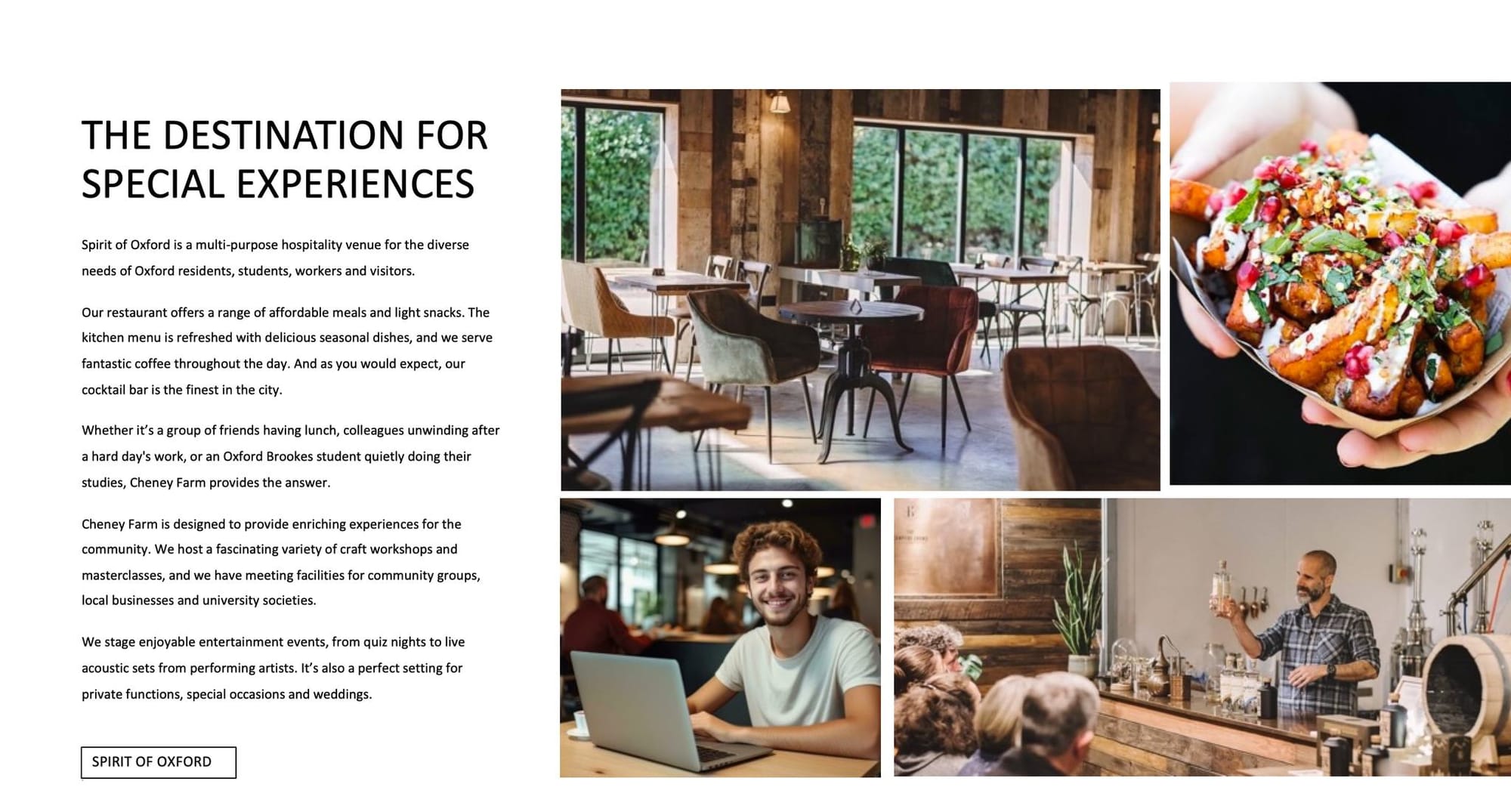
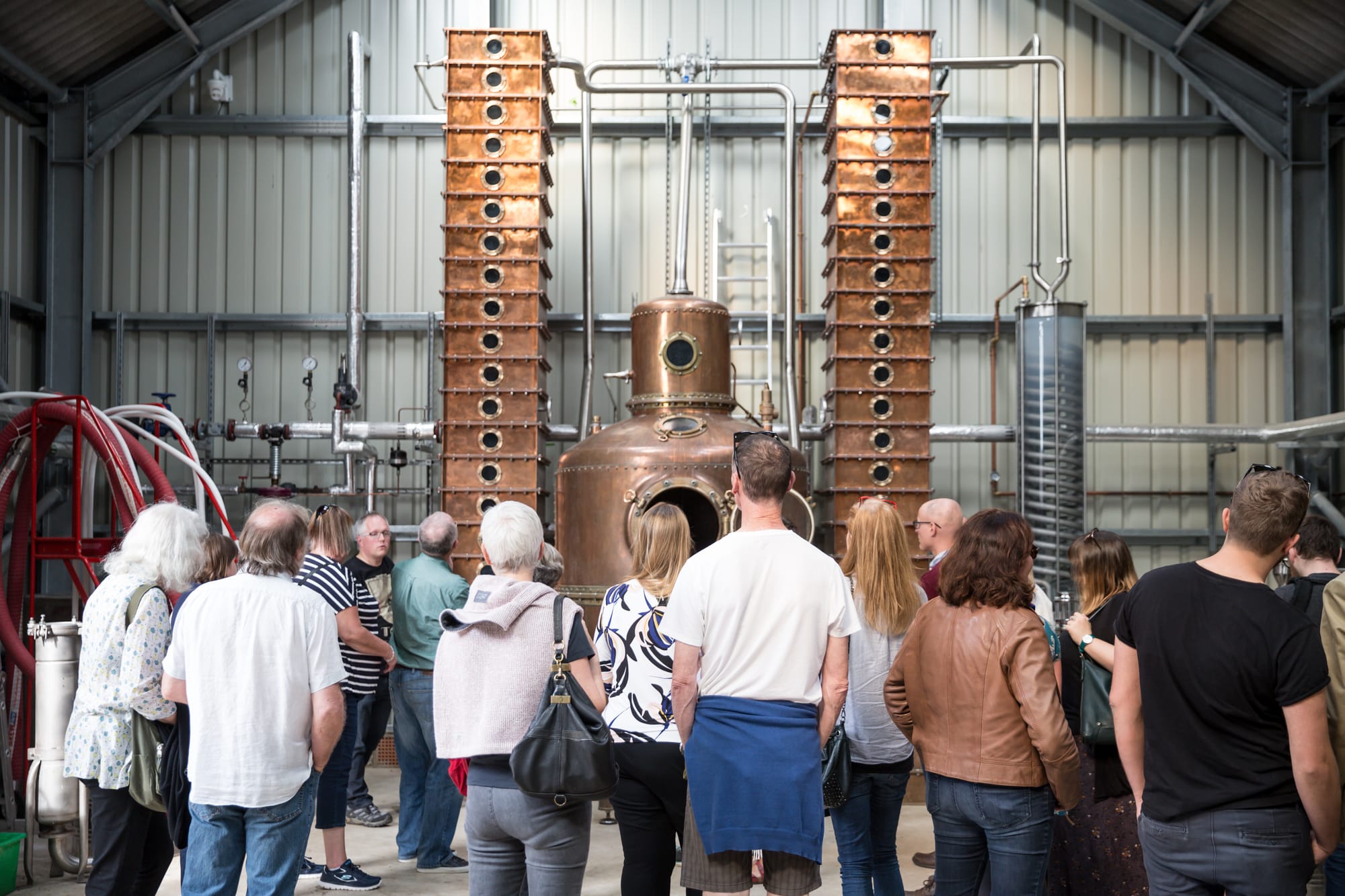
A second chance?
Tom Nicolson was determined to bring a distillery back to Oxford and bring the stills back to life. He formed a new company, the Oxford Spirit Co, or ‘Spirit of Oxford’. Its proposals, building on the previous successful distillery, aim to create a “world class eco-distillery and hospitality venue”. The team propose to relaunch the distillery with a larger, multipurpose visitor centre. The visitor centre would house a restaurant, cocktail bar and snack options, showcasing local produce. It would also be available for weddings and other private hire, and host a concierge service. Oxford City Council had granted planning permission in 2017 for a cafe restaurant, tasting room and bar, but the development stopped at a visitor centre and bar.
Nicolson told the Clarion:
“We’d like to create a new entry point for visitors into the city, via the distillery – a relaxing place where tourists can learn about Oxford’s attractions, book memorable experiences, and have onward plans organised from our base. It will be a collaboration between businesses across the city to enhance visitors’ experiences, maximise their time, and drive footfall to support the Oxford economy.”
The business plan claims that a reopened distillery would deliver many layers of value to the city and its inhabitants: training and employment, hospitality and tourism, sustainability and biodiversity, regenerating and protecting South Park, and providing local amenities and transport links for the city. A spokesperson for the project said “We want to place Oxford, once again, on the global drinks industry stage while giving back to the city and its environs in multiple ways – a ‘forever distillery’ which will support and be enjoyed by the people of Oxford for generations to come.”
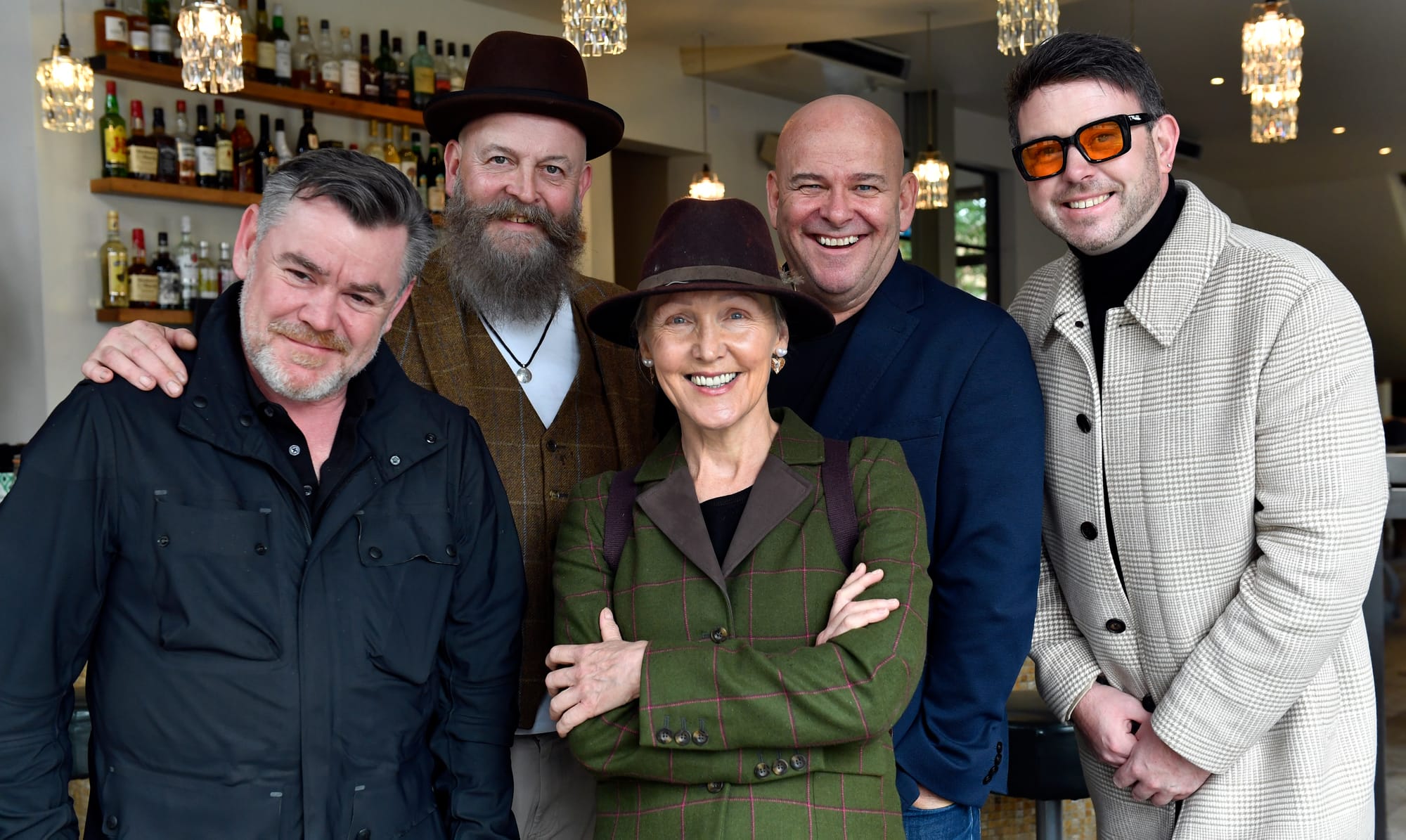
This is no casual bid for a café in a park. Co-founders of the new Oxford Spirit Co include some of the original TOAD team, including Joy Le Fevre (communications) expert and Phil Bourne (branding). Also on the team are Oxford residents and businessmen Matt Broadway and Gordon Nelson; distillery consultant Gareth Roberts; Oxford concierge William Thomson; social enterprise restaurateur Simon Boyle; and lawyer Mark Beer OBE.
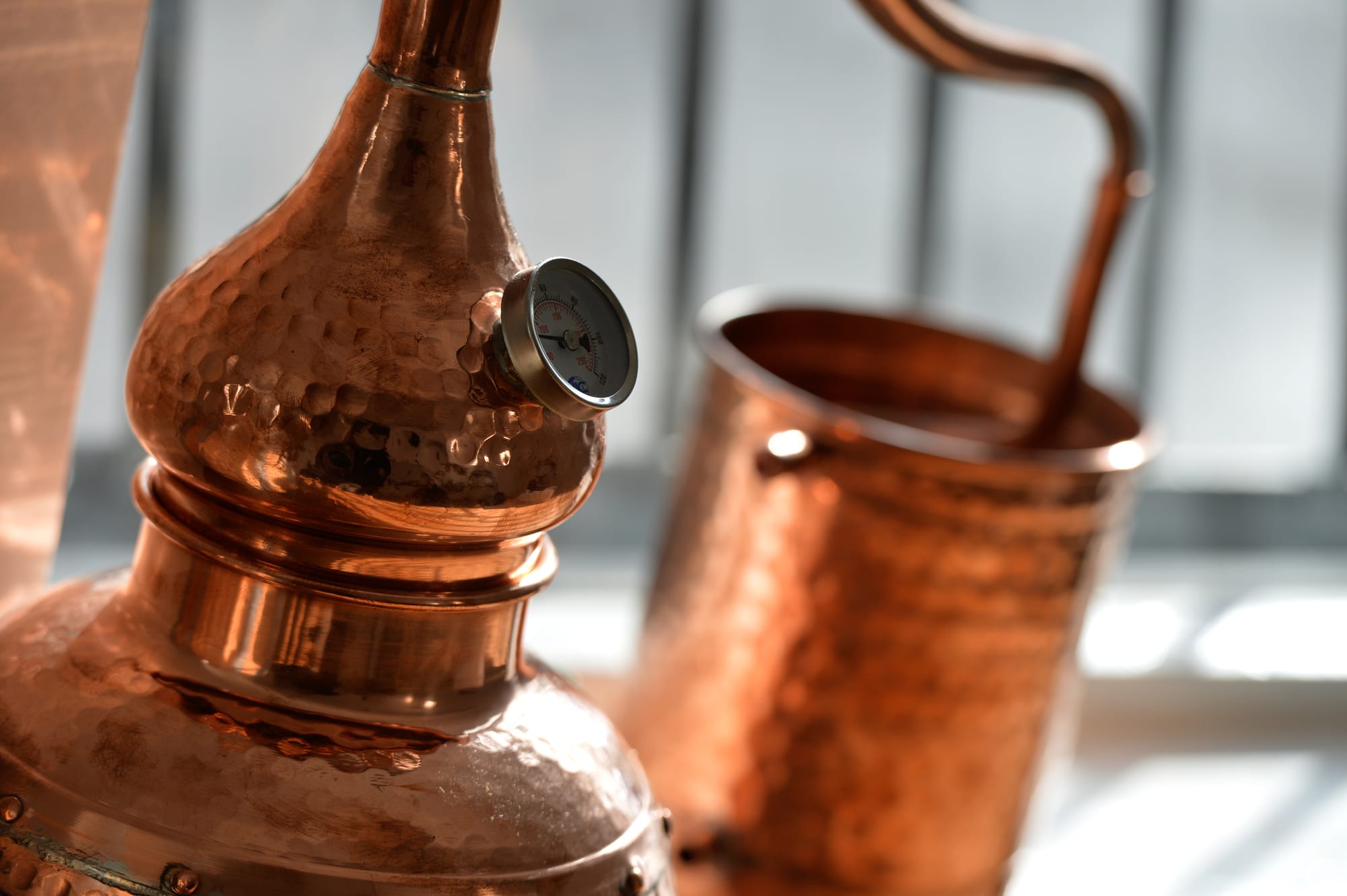
Take two
Distillery technology has moved on since TOAD v1 was set up. Spirit of Oxford plans to replace the mothballed stills with new copper ones, taking advantage of recent advances in low carbon heating and energy efficient distilling. High-temperature heat pump technology will use electricity from renewable sources to generate steam. A heat reclamation system will remove the need to waste heat to the atmosphere: instead, it will be recycled to make new spirit, with any excess heat warming the buildings on the site.
The would-be distillers say they have formed working relationships with farmers who grow grain using regenerative principles have been established. They hope, too, to host the Beyond Food Foundation’s ‘FreshLife’ training programme, to build skills in those whose lives have unravelled for reasons such as trauma, addiction, poor mental health, incarceration, or simply feeling excluded. “From our regenerative farming practices, to heat recycling and our water supply,” they say, “we aim to demonstrate our commitment to meeting the highest standards of social and environmental performance.”

Equally ambitious is the range of spirits the venture hope to distil: gins crafted from inspired botanicals, many sourced locally; a range of seasonal spirits including rums and eau-de-vie; classic English rye whisky; bespoke small batch whiskies distilled in partnership with local brewers; and low-/zero-alcohol versions of its white spirit products. Both the sustainability credentials and the low alcohol variants are, of course, bang on trend for 2025.
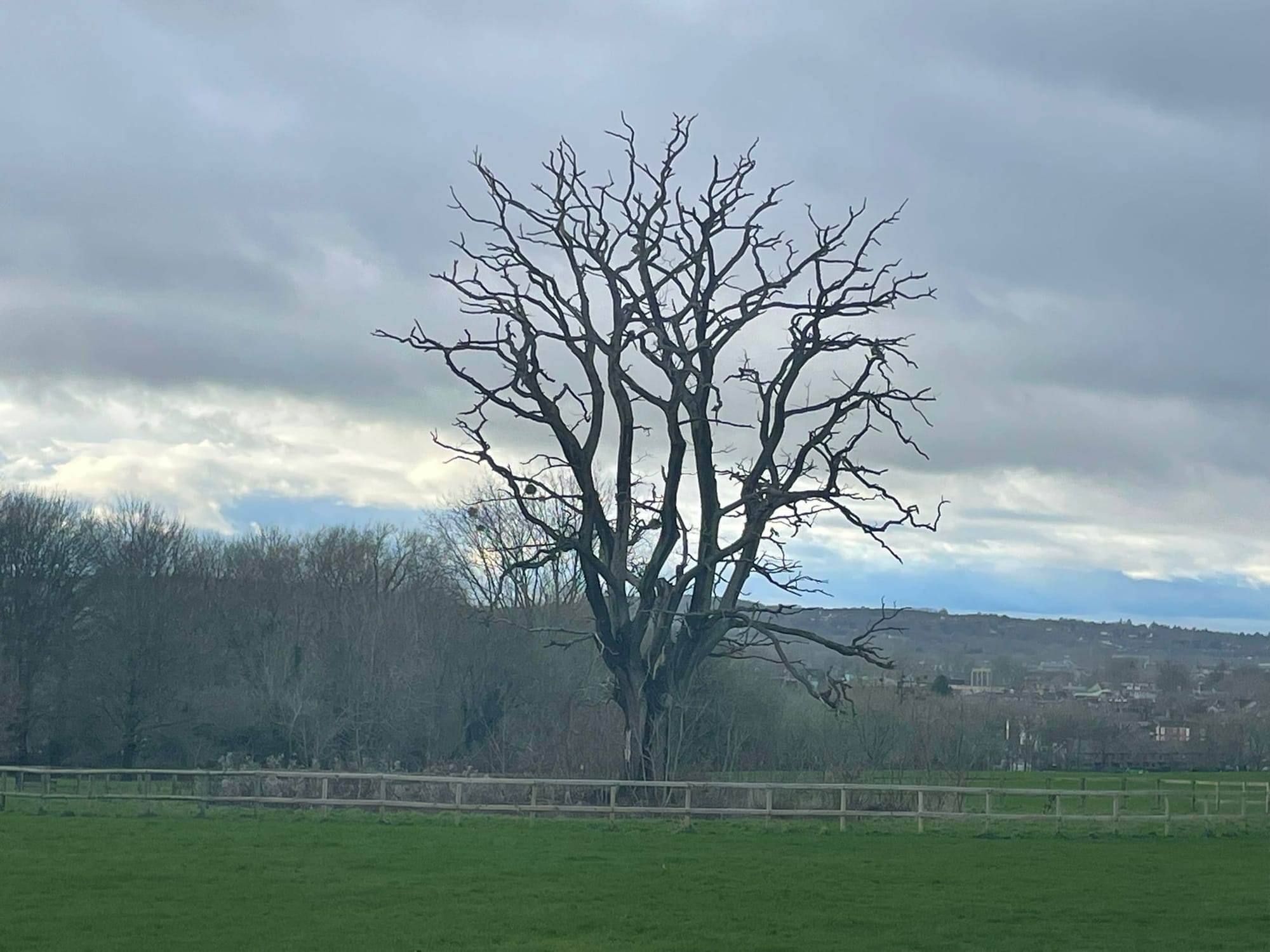
In the centre of South Park there is a dead oak tree that is gradually decaying. The tree was a small sapling in 1645, when Cromwell's army was camped there, laying siege to the King’s forces in Oxford.
“It’s clear from our conversations with locals that many people are unsure what to do about the tree. We have an idea! If everyone agrees and if it’s genuinely helpful, we could fell the dead tree and use its oak to make whisky casks. We might craft an enduring oak beam to feature in the new barn on Cheney Farm. We could distil a limited-edition whisky in the casks called ‘Cromwell’s Rye’, as a mark of respect for the park's great history. We could then auction casks or sell bottles to raise money for the park. Obviously, this is just an idea, an example of how we might work collaboratively with our neighbours.”
Trees are always emotive subjects, and perhaps this will remain “just an idea”. But there has been wide support from residents, community groups and businesses to retain a distillery in Oxford. Back in the spring, a ‘Friends of TOAD’ group tried to persuade the previous distillery bosses to work with new owners to keep the distillery open. Oxford East’s MP Anneliese Dodds said “Residents in my constituency are very proud of The Oxford Artisan Distillery brand and its location in South Park… many of them have written to me to ask whether anything can be done to preserve the distillery’s future in Oxford.”
A lasting legacy
Oxford’s distillery lasted just seven years. In a field characterised by “generational businesses” (think of any of the famous gin and whisky brands), it’s hard not to feel that Fielden’s exit left the city short-changed. Tom Nicolson again:
“Distilleries can exist for centuries and become ingrained within the culture of their hometowns. This is what we want to achieve with Spirit of Oxford. We have constructed our business around maintaining a permanent home in Oxford. Our development plans for Cheney Farm are based on long term projections for the hospitality sector and allow maximum flexibility to adapt to changing consumer and industry needs.”
The bid process ended on December 20th. Any property in Oxford is sought after, but Oxford City Council’s sudden decision to withdraw its change-of-use application will raise eyebrows. Will the site remain as a distillery after all? Oxford will find out in the New Year if the barn at Cheney Farm will simply become a warehouse with history, or an alternative tourist hotspot for the generations.
“It is a shame that TOAD decided to leave Oxford – but we are here now, just hopeful that we win the bid and get the chance to see a distillery stay. In the broadest sense, we are working to keep a part of Oxford’s spirit alive!”
We are indebted to Headington News and Spirit of Oxford who helped with this article.
